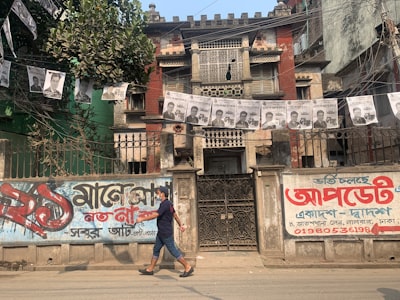The recent gangrape of a law student in Kolkata, allegedly orchestrated by acquaintances—with one committing the assault while two others stood guard—has reignited outrage over India’s persistent crisis of sexual violence and the culture of impunity surrounding it.
A Symptom of Deeper Problems
This case is shocking not only for the crime but for the alleged collusion: friends became perpetrators, exposing the insidious proximity of risk for women. Kolkata, known for its vibrant student life, has now become a backdrop for yet another distressing episode that underscores how safety can be a mirage—even among trusted circles.
Main Controversies & Dilemmas
- Accountability vs. Social Shame: Victims often face more interrogation and stigma than suspects. Many cases remain unreported due to victim-blaming.
- Speed and Quality of Justice: High-profile cases often highlight the sluggishness of the legal system. The public release of the accused's photos can sway perceptions, but does this help justice or undermine due process?
- Role of Institutions: Educational institutions promise a safe space, but such incidents prove systemic gaps remain. Are law schools, expected to foster justice, failing to protect their own?
Societal Impact and Shifting Trends
This incident is part of a broader pattern: rising reports of sexual violence even as societal awareness grows. Movements like #MeToo have forced conversations, yet the crime statistics remain stubbornly high, especially among young, urban populations. Urban centers aren’t always safer—they often mask deeper issues under a veneer of progress.
| Perspective | Pros | Cons |
|---|---|---|
| Public Naming of Suspects | Can pressure authorities, deter future crimes | Risks vigilantism, violates due process |
| Institutional Response | Supports victims, improves campus safety | Can be slow, risk of reputation management only |
| Legal Process | Ensures fair trial, upholds rights | Can be slow, retraumatizes victims |
What Needs to Change?
- Normalizing conversations about consent and boundaries—starting at home and in schools
- Efficient, victim-centric legal and institutional responses
- Societal solidarity: treating such crimes not as isolated events, but as a call for collective action and cultural shift
Conclusion
Kolkata’s incident is a grim reminder: law and awareness have outpaced cultural change. Until society refuses to tolerate impunity at every level—among friends, institutions, and law enforcement—true safety remains elusive for India’s women.
This article was inspired by the headline: 'Kolkata law student gangrape: एक दोस्त कर रहा था रेप, दो दे रहे थे पहरा, सामने आई आरोपियों की तस्वीर - India TV Hindi'.

Comments
No comments yet. Be the first to comment!